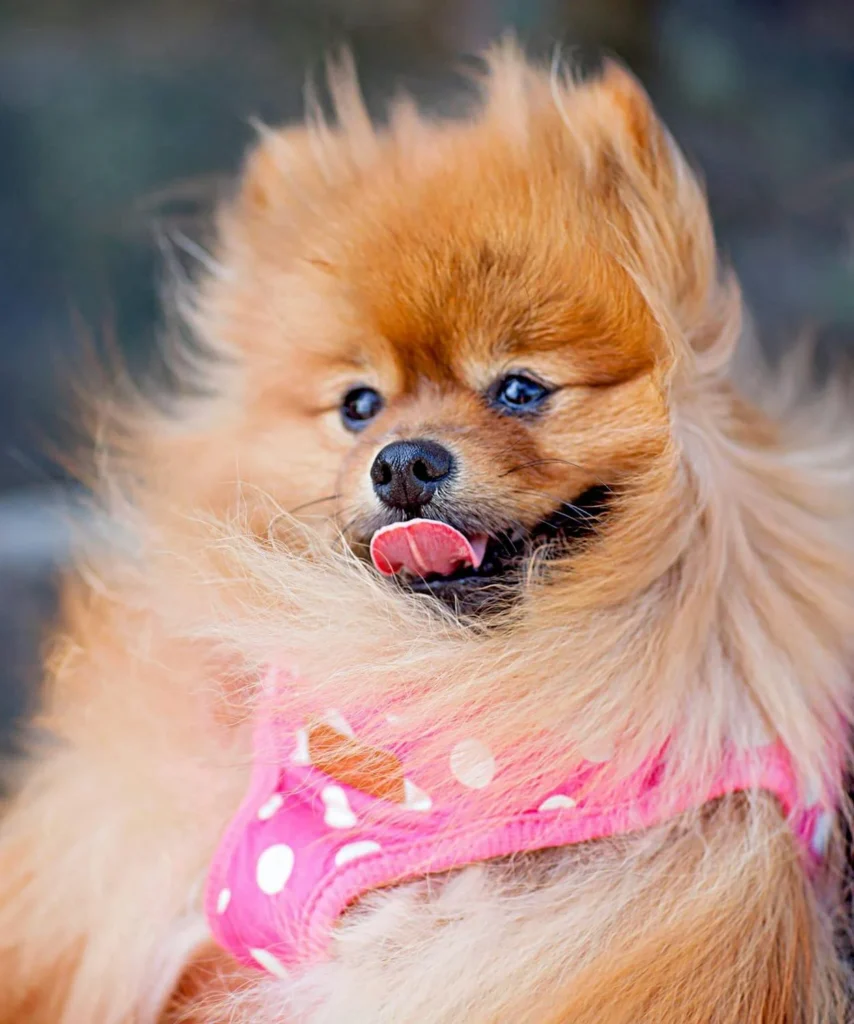Welcome to the ultimate guide on Corgi whiskers! 🎉 Whether you’re a long-time Corgi lover or just curious about these adorable, short-legged pups, you’ve come to the right place. We’ll dive deep into the world of Corgi whiskers, exploring everything from their purpose to proper care. So, let’s get started on this whisker-filled journey! 🚀
What Are Dog Whiskers, Anyway? 🧐
Before we focus on Corgis, let’s talk about dog whiskers in general. These aren’t just cute facial features – they’re essential sensory tools!
Dog whiskers, also known as vibrissae, are specialized hairs that grow on various parts of a dog’s body. They’re thicker and more rigid than regular fur, and they’re deeply rooted in nerve-packed follicles. This makes them incredibly sensitive to changes in the environment.
The Main Functions of Dog Whiskers:
- Spatial awareness: Whiskers help dogs navigate their surroundings, especially in tight spaces.
- Object detection: They can sense nearby objects, even in the dark.
- Communication: Whiskers play a role in expressing emotions and body language.
- Protection: They act as an early warning system for potential threats to sensitive areas like the eyes.
Now that we know the basics, let’s address the burning question…
Do Corgis Have Whiskers? The Surprising Answer! 😮
Yes, Corgis do have whiskers! 🎊 Like most dog breeds, both Pembroke Welsh Corgis and Cardigan Welsh Corgis are born with these sensory hairs. However, they might not be as noticeable as on some other breeds due to the Corgi’s fluffy face.

Where Are Corgi Whiskers Located?
Corgi whiskers can typically be found in the following areas:
- Around the muzzle (mystacial whiskers)
- Above the eyes (superciliary whiskers)
- On the cheeks (genal whiskers)
- Under the chin (interramal tuft)
The Pros and Cons of Corgi Whiskers 📊
Let’s break down the advantages and disadvantages of these sensory tools for our Corgi friends.
Pros of Corgi Whiskers:
- Enhanced spatial awareness: Helps Corgis navigate low-to-the-ground spaces.
- Improved herding ability: Assists in their traditional role as herding dogs.
- Protection from eye injuries: Warns them of nearby objects that could harm their eyes.
- Better communication: Aids in expressing emotions to humans and other dogs.
Cons of Corgi Whiskers:
- Overstimulation: In busy environments, whiskers may lead to sensory overload.
- Grooming challenges: Long whiskers can make facial grooming more difficult.
- Tangles: Whiskers may get tangled in bedding or toys.
Should I Cut My Corgi’s Whiskers? The Great Debate 💇
This is a controversial topic in the dog grooming world. Let’s explore both sides of the argument.
Arguments Against Cutting Whiskers:
- Sensory deprivation: Cutting whiskers may disorient your Corgi.
- Safety concerns: Whiskers help prevent injuries, especially to the eyes.
- Natural processes: Whiskers naturally shed and regrow on their own.
Arguments For Cutting Whiskers:
- Aesthetic purposes: Some show dog standards prefer trimmed whiskers.
- Hygiene: Trimming may help keep the face cleaner.
- Comfort: In rare cases, overly long whiskers might irritate the dog.
Expert Opinion: Most veterinarians and animal behaviorists recommend against cutting a dog’s whiskers unless absolutely necessary for medical reasons.
The Effects of Cutting Corgi Whiskers: Short-Term and Long-Term 🕰️
If you do decide to cut your Corgi’s whiskers (which we don’t recommend!), here’s what you might expect:
Short-Term Effects:
- Disorientation: Your Corgi may bump into things more often.
- Reduced confidence: They might be less sure of themselves in tight spaces.
- Changes in behavior: You might notice them being more cautious or hesitant.
Long-Term Effects:
- Adaptation: Over time, your Corgi will likely adjust to the lack of whiskers.
- Regrowth: Whiskers will grow back, typically within 2-3 months.
- Potential nerve damage: Repeated cutting may damage the sensitive follicles.
Whisker Woes: Signs and Symptoms of Whisker Problems in Corgis 🚨
While whiskers are generally low-maintenance, there are some issues to watch out for:
- Whisker fatigue: Overuse of whiskers can lead to stress and discomfort.
- Broken whiskers: These can be painful and may bleed.
- Infections: Rarely, the follicles can become infected.
Symptoms to Watch For:
- Rubbing face excessively
- Reluctance to eat or drink from normal bowls
- Increased clumsiness
- Visible damage to whiskers
- Redness or swelling around whisker areas
Whisker Remedies: Keeping Your Corgi’s Sensors in Top Shape 💪
To keep your Corgi’s whiskers healthy:
- Don’t trim them: Let nature take its course.
- Use wide bowls: This prevents whisker fatigue during meals.
- Be gentle when grooming: Avoid pulling or tugging on whiskers.
- Check regularly: Look for any signs of damage or infection.
- Provide enrichment: Plenty of toys and activities can help prevent overstimulation.
Corgi Whiskers vs. Other Breeds: A Hairy Comparison 🐾
Let’s see how Corgi whiskers stack up against other popular breeds:
| Breed | Whisker Prominence | Typical Length | Special Features |
|---|---|---|---|
| Corgi | Moderate | Medium | Well-distributed for low navigation |
| Labrador | High | Long | Excellent for water sensing |
| Poodle | Low | Short | Often trimmed for shows |
| German Shepherd | High | Long | Aids in police and military work |
| Chihuahua | High | Long relative to size | Helps with balance |
Corgi Whiskers Through the Ages: From Puppy to Senior 👶➡️👴
Whiskers aren’t just for adult Corgis! Let’s look at how they change throughout a Corgi’s life:
| Age Stage | Whisker Development | Care Needs |
|---|---|---|
| Newborn | Just starting to grow | Very delicate, avoid touching |
| Puppy (2-4 months) | Rapidly growing | Introduce gentle touching |
| Adolescent (4-12 months) | Fully grown | Regular checks during grooming |
| Adult (1-7 years) | Maintained growth | Monitor for any changes |
| Senior (8+ years) | May thin or gray | Extra gentle care, check for brittleness |
Fascinating Whisker Facts: Did You Know? 🤓
- Whiskers can detect air currents as subtle as 1/2000th of a second! 💨
- A Corgi’s whiskers are about three times as thick as their regular fur. 🦔
- Whiskers are so sensitive that they’re connected to the same part of the brain as fingertips in humans! 🧠
- Corgis, like all dogs, can’t see clearly within 12 inches of their nose – whiskers help fill in this blind spot. 👀
- The position of a Corgi’s whiskers can indicate their mood. Forward means they’re curious, pulled back could mean they’re scared. 😊😨
FAQs: Your Burning Whisker Questions Answered 🔥
Q: Can Corgi whiskers grow back if cut?
A: Yes! Whiskers will typically grow back within 2-3 months if cut.
Q: Do Corgi whiskers change color as they age?
A: Sometimes. Like regular fur, whiskers may gray as your Corgi gets older.
Q: Are Corgi whiskers different from cat whiskers?
A: While they serve similar purposes, dog whiskers are generally stiffer and less mobile than cat whiskers.
Q: Can I pluck my Corgi’s whiskers?
A: Absolutely not! Plucking whiskers is painful and can damage the sensitive follicles.
Q: Do Corgis shed their whiskers?
A: Yes, Corgis naturally shed and regrow their whiskers as part of their normal hair growth cycle.
Wrapping Up: The Wonderful World of Corgi Whiskers 🎁
There you have it – everything you ever wanted to know about Corgi whiskers (and probably a bit more)! 😄 These amazing sensory tools are a crucial part of your Corgi’s equipment for navigating the world. By understanding and appreciating your Corgi’s whiskers, you’re one step closer to being the best pet parent you can be.
Remember, those little whiskers are doing big jobs – helping your Corgi be the confident, curious, and capable pup you know and love. So next time you’re giving your Corgi some cuddles, take a moment to appreciate those wonderful whiskers. They’re not just cute – they’re super important! 🥰
Now go forth and spread the whisker wisdom! Your Corgi (and their whiskers) will thank you. 🐾💖



